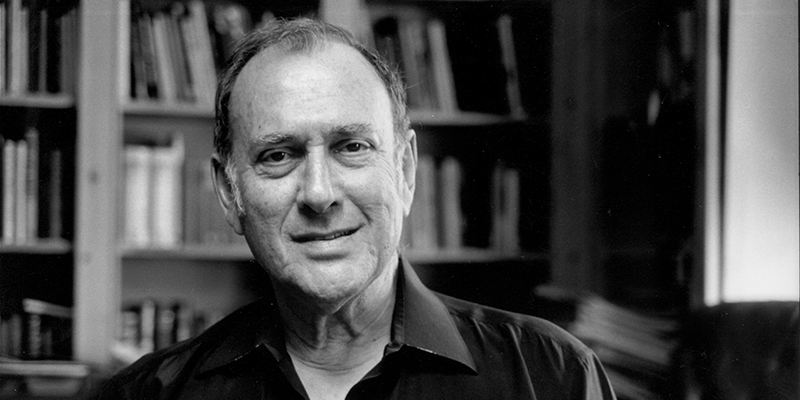
Well known for his masterful pauses and the dark undertones of his plays, Harold Pinter has been recognised the world over as a paragon of what British theatre has to offer.
Join us as we celebrate 50 years of literary work by highlighting five of his titles that reflect the breadth of his talent.
…
The Birthday Party, 1952 (US/UK)
An early example of Theatre of the Absurd, Pinter’s second full-length play was received with bewilderment at its London premiere. Years later, the groundbreaking work was recognized as a watershed in theatre history.
Goldberg and McCann arrive at a seaside boarding house where Meg and Petey live with their guest Stanley. However, when they inquire about Stanley, McCann and Goldberg reveal they have a job to do. Learning it is Stanley’s birthday, they give Stanley a “party” at which he is verbally bludgeoned into submission.
The Caretaker, 1959 (UK)
One of Pinter’s most commercially successful plays, this 3-actor drama blends realism and absurdism while providing hearty fodder for brilliant actors. Original cast members Alan Bates and Donald Pleasence, joined by Robert Shaw, reprised their roles in the 1963 film adaptation.
Into his derelict household shrine Aston brings Davies, a tramp, but a tramp with pretensions – even if to the world he may seem to be a pathetic old creature. All that is left of his past now is the existence of some papers, papers that will prove exactly who he is and enable him to start again.
Aston, too, has his dreams. He has always been good with his hands and there is so much to do in the house. Human nature, however, is a great spoiler of plans…
The Homecoming, 1964 (UK)
Ambiguous, enigmatic and fraught with tension, this two-act drama wrestles with concepts of power, sex and the morality of family life. In its 1967 New York premiere, The Homecoming won the Tony Award for Best Play.
Teddy arrives home to pay his family a visit with his wife Ruth, who settles into the household as if into a well-known niche. Teddy’s brothers and his father all take it for granted that she is anyone’s for the asking — and she is. It is then suggested that they should set her up in trade, in a little flat in Soho. Calmly, Ruth lists the conditions she requires before accepting, barely batting an eyelid as Teddy returns to America.
One for the Road, 1989 (US/UK)
Considered one of Pinter’s most overtly political works, One for the Road offers a blistering criticism of totalitarian regimes. Pinter directed the 1989 world premiere and later played the role of Nicolas in a 2001 Gate Theatre production in Dublin.
This allegorical play sees a family of three who are kept locked away in individual rooms and ruled over by an all-powerful officer named Nicolas.
First presented in a double bill with The Room (US/UK) , this one-act begins inauspiciously enough but soon develops into a tangle of menacing undercurrents.
In a fashionable restaurant, two gangster-ish brothers, formerly from the East End but now “strategy consultants who enforce the peace”, are celebrating a wedding anniversary with their wives, who are sisters. At the next table, a banker is dining with his wife, formerly his secretary. Violent yet wildly funny, this play displays a vivid zest for life.
…
To discover more of Harold Pinter’s work, explore his collection (US/UK).

Comedy Mysteries: Gasps, Laughs and Thrills

A Children’s Theatre Classic: An Interview with Snow White And The Seven Dwarfs Composer Michael Valenti

